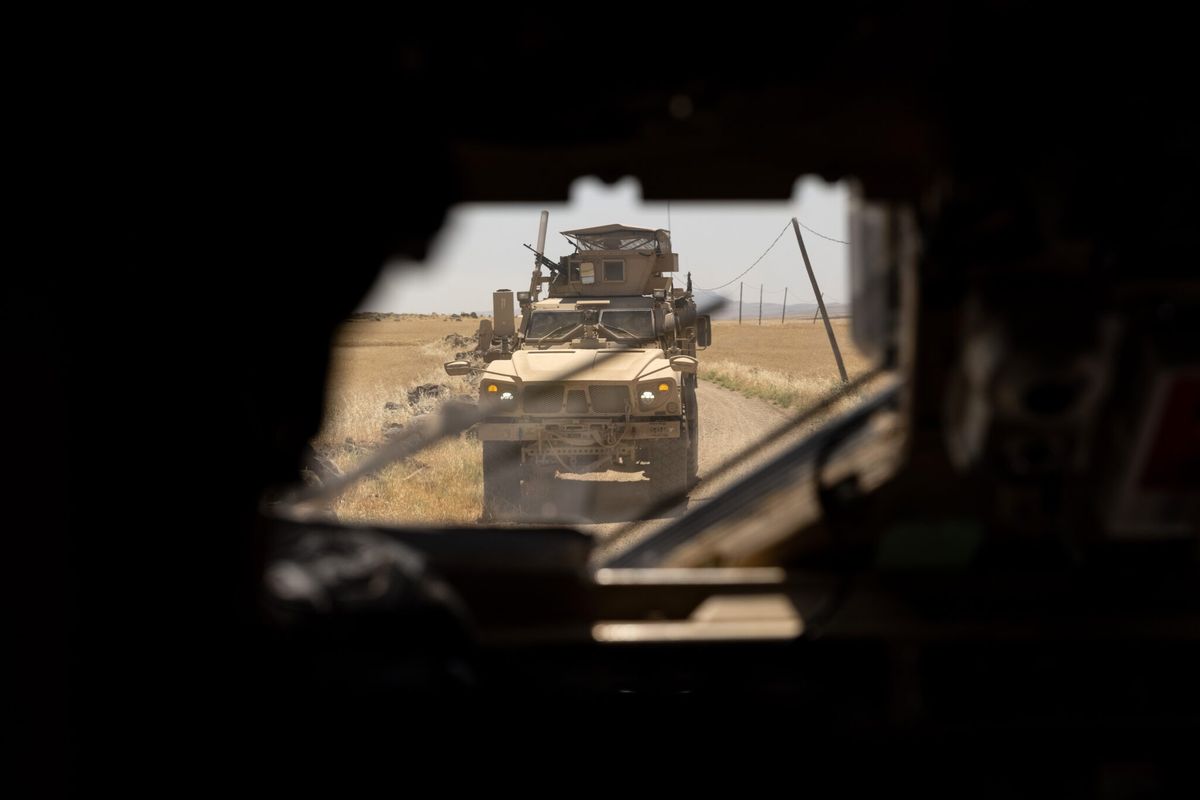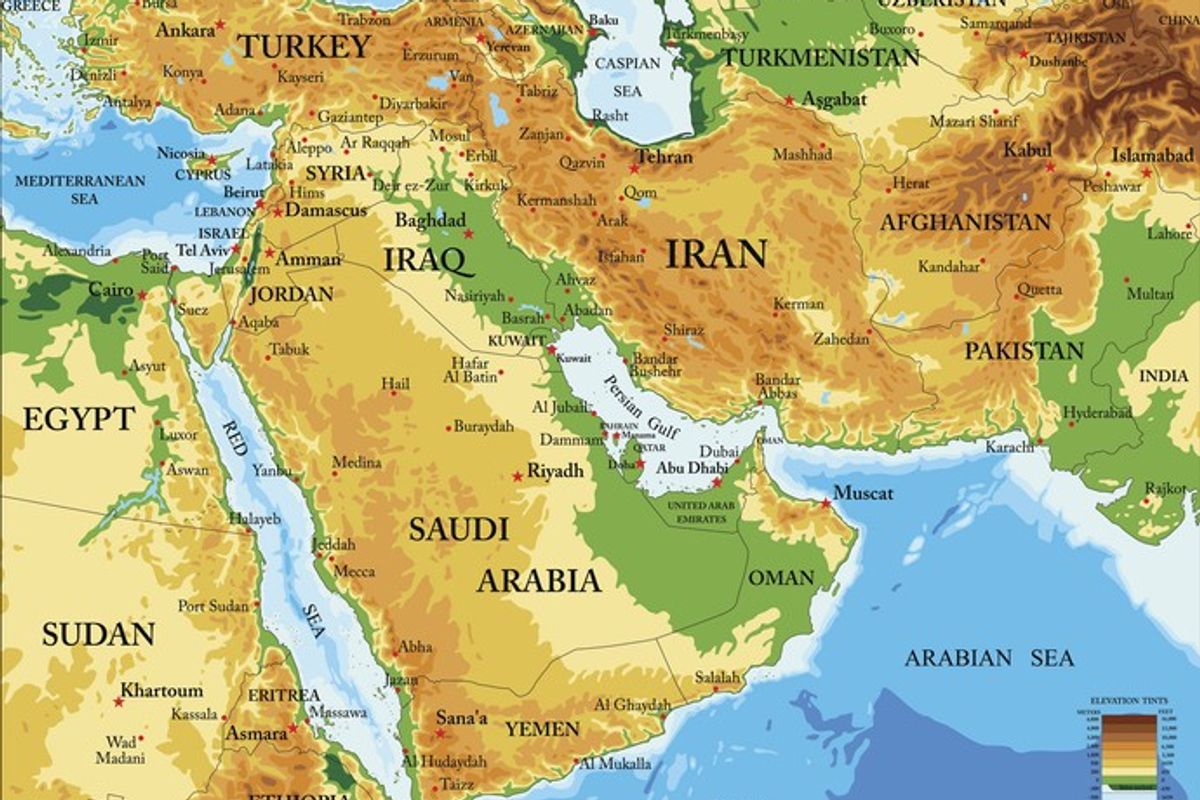Iraqi forces seized the Kurdish-held city of Kirkuk on Monday, according to Kurdish and Iraqi officials, leaving Washington scrambling to respond to the surprise dawn assault.
American officials seemed taken aback by the attack, with the State Department saying only it was closely monitoring the situation in Kirkuk and the Pentagon seeking to cast the fighting as an isolated incident stemming from a “misunderstanding.”
“We don’t like the fact that they are clashing,” President Donald Trump said. “But we are not taking sides in that battle,” Trump said.
The fighting raises the specter of another major faultline erupting in Iraqi civil society. After years of fighting between Sunni and Shi’a Iraqis, this time the conflict is rooted in generations of rivalry between the Shi’ite-dominated Iraqi central government and Kurdish nationalist ambitions.
The advance on the city came after weeks of escalating tensions in the wake of the controversial September 25 referendum that saw 92 percent of Iraqi Kurds voting in favor of independence. Iraqi government forces quickly captured Kirkuk’s provincial government headquarters on Monday and thousands of Kurdish civilians have fled the city, Reuters reported.
The U.S. military described the exchange of fire between the Iraqi and Kurdish forces as a “misunderstanding,” adding that it is against any action that distracts from its mission fighting ISIS.
“We believe the engagement this morning was a misunderstanding and not deliberate as two elements attempted to link up under limited visibility conditions,” a statement from the U.S. military said.
Pentagon spokesman Army Col. Rob Manning also told reporters that the coalition is monitoring movements of military vehicles and personnel in the area and that these “so far have been coordinated movements, not attacks.”
As for the reports of fighting between Kurdish troops and Iraq government forces, Manning said that “we believe this to have been an isolated incident.”
“We have not seen levels of violence suggested in some media reports,” he said, adding that “we strongly urge all sides to avoid additional escalatory actions” that distract from the ISIS fight and undermine Iraq’s stability.
Retired Army Lt. Gen. Mark Hertling, who previously commanded an armored division in northern Iraq, told The Cipher Brief that the Pentagon’s strategy needs to extend beyond defeating ISIS.
“You can defeat ISIS, but until you solve the problem of what’s going on in Iraq, Syria, the Kurdish region, and Iran, they’re going to come up in another way,” he said. “So we can kill all the ISIS fighters we want, but it’s just going to generate a whole new breed.”
This particular situation could potentially lead to a more extensive regional clash and “turn from a Sunni vs. Shia to an Arab vs. Kurd fight,” he said.
The U.S., he suggested, should back Iraqi Prime Minister Haider al Abadi “in establishing rule of law in the Arab provinces.” At the same time, Hertling said, “we can support [KRG President Masoud] Barzani in terms of support for the Kurdish Regional Government within the boundaries of Erbil, Sulaymaniyah, and Duhok — but he’s not going to want that, because he sees his population in other places.”
According to James Jeffrey, former U.S. Ambassador to Iraq, “maintaining a unified Iraq has the charm of being the best thing to do in this crisis.”
To fix this situation, the U.S. needs to take the position “of pushing for the Kurds to go back to where they were before ISIS blew up the scene and allowed KRG forces to take disputed areas like Kirkuk,” he told The Cipher Brief.
The U.S. should also reemphasize and solidify its commitment that the Iraqi army and the semi-official paramilitary Popular Mobilization Units should not enter those territories, he said.
“We have an opportunity to play a beneficial role here, but I don’t know if the Trump administration will grab it,” Jeffrey said.
Few members on Capitol Hill weighed in on the situation in Kirkuk.
Sen. John McCain (R-AZ), chairman of the Senate Armed Services Committee, said he was “deeply concerned” about the reports of clashes between Iraqi forces and the Kurdish Peshmerga, and particularly about the claims that Iranian and Iranian-backed forces are part of the assault against Kurdish positions near Kirkuk.
“Iraqi forces must take immediate steps to de-escalate this volatile situation by ceasing their advances,” he said in a statement Monday.
He threatened that there would be “severe consequences” if U.S. gear continues to be “misused,” calling for Abadi and the KRG to “engage in a dialogue about the Kurdish people’s desire for greater autonomy from Baghdad at an appropriate time and the need to halt hostilities immediately.” The U.S. has trained and equipped both Baghdad and the KRG in the fight against ISIS.
No Republican or Democratic members on the Senate Foreign Affairs Committee responded to The Cipher Brief’s requests for comment by time of publication.
Senate Minority Leader Chuck Schumer said he was urging the Trump administration to "immediately initiate a dialogue" between the Iraqi government and Iraqi Kurds. He wrote on Twitter that there needs to be a "peaceful" resolution that does not jeopardize the fight against ISIS and put gains at risk, while also finding a way to "accommodate Kurds' legit aspirations."
After the referendum, the New York Democrat called for the U.S. to back an independent Kurdish state.
Meanwhile, Republican Rep. Trent Franks of Arizona, a member of the House Armed Services Committee, said the "American government must end its indifference to our loyal allies, the Kurds."
He urged Abadi "to fulfill his pledge to prevent any external or internal attacks against the Kurds and prove Baghdad is not the puppet of Tehran," warning in a statement that otherwise "the U.S. will have no other choice but to pull funding."
Mackenzie Weinger is a national security reporter at The Cipher Brief. Follow her on Twitter @mweinger.
Fritz Lodge contributed to this report.













